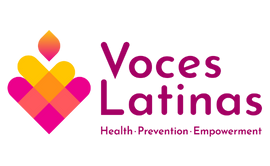In a Queens Subway Station, Immigrant Women Find a Helping Hand
Written by Juan Vassallo
Food cart at the Roosevelt Avenue/74th Street subway station
As Paula Velez drove her van through the bustling streets of Jackson Heights, she went over the day’s agenda with her team sitting in the back.
“Today we’re going to talk to the women working in the subways, especially the ones with children,” she said. “We’ll invite them to lunch, and once they feel comfortable with us, we can explain to them why their children should be in school, not working.”
Velez parked in front of La Abundancia, the Colombian restaurant where she was hoping to sit with the migrant women who sell food underground and above ground, on the platforms of the subway line along Roosevelt Avenue.
Velez is an outreach coordinator for Voces Latinas, a Queens-based nonprofit that provides resources to new and undocumented migrants from Latin America. Operating since 2003, Voces Latinas connects them with healthcare and legal services, and provides food, clothing, reduced-fare MetroCards, HIV tests and HIV-prevention medication, among other resources.
The four women Velez is leading that day are promotoras, peer advisers who act as a bridge between the community they serve and the organizations that offer support. As more migrant women resort to under-the-table work, the role of promotoras in supporting these women has become a much-needed lifeline.
The promotoras’ expertise is “how to talk to their clients,” says Nathaly Rubio-Torio, executive director of Voces Latinas. “A lot of our promotoras have had experiences with discrimination, mental health. Some are survivors of violence or live with HIV. Many have crossed the border.
“We believe that the one who has experienced these things is the best to know what is needed and how to reach those that are experiencing it now.”
Carrying bags full of brochures, condoms and MetroCards, two promotorashead to the Roosevelt Avenue/74th Street subway station. As commuters zip through the platform, they search for women selling fruits and candy. They quickly spot one standing behind a cart stacked with churros, Doritos, Oreos, and sliced mangoes in plastic cups. She is the first of more than 15 vendors the promotoras will approach that afternoon.
“Do you have health care?”, asks Rebeca Huamani, 53, who has been working with Voces Latinas for over three years.
The woman nodded, but Huamani still went on to explain how to access affordable healthcare through Medicaid and NYC Care. The woman listened patiently and took a brochure, though she seemed reluctant to engage in conversation.
“Sometimes they say they have health care but they actually don’t,” said Huamani. “They are afraid of getting in trouble, and they don’t know their rights.” She thinks their fear is reasonable. As unlicensed vendors, they are used to being ordered out by the police.
Before moving to New York three years ago, Huamani worked as a promotorain the mountains and rain forest of Peru, her home country. Through the Catholic church, she helped people in isolated communities similar to those where many of the women in the subway stations come from. Most are from indigenous communities in Ecuador, a country that has seen a dramatic increase in poverty and violence, as gangs battle to control the distribution of narcotics.
Like other newly arrived migrants, they often avoid seeking help due to fear of deportation or lack of information. Experiences of trauma from crossing the border and the discrimination they often face here make integration even harder.
“It’s hard to get them to talk,” says Huamani. “Last month we were lucky because we found one that accepted our lunch offer and she told the others about it. Suddenly, we had 12 women at the restaurant. One even came from Times Square with her children.”
Today, the promotoras are pleased to see that there aren’t any school-age children working that day. Now that the school year has begun, around 20,000 migrant children have enrolled in New York public schools.
But some still find ways to help out their families. The promotoras approach a mother and her 15-year-old daughter, who carries her infant brother in a shawl strapped to her back. The teenage girl is the first to accept the lunch invitation. She joins Velez and the other promotoras outside La Abundancia, while her mother stays behind to watch out for her box full of sweets. At the restaurant, the promotoras chat with the girl over arepas and empanadas, and they take her personal information to follow up with her later. Once they appear to have gained the girl’s trust, they ask her why she is not in school that afternoon.
“I met my mom at the station right after school,” the girl said. “She needs my help. She can’t do it alone.”
Written by Juan Vassallo


